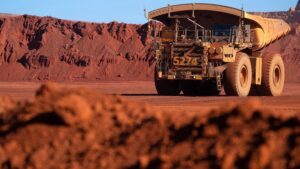Friday’s meeting of the COAG Energy Council will focus on the immediate impact of the COVID-19 on energy supplies, as the attention of both State and Federal governments is focused on maintaining the security of the energy system.
The meeting is set to consider a pared-back agenda, meeting for just a few hours late in the afternoon, with Federal energy minister Angus Taylor set to ask State and Territory energy ministers to begin preparing stock-takes of crucial fuel stocks, including transport fuels and gas, to ensure sufficient supplies are distributed throughout the country.
It is also understood that the COAG Energy Council will be asked to consider a shift to regular weekly meetings, to monitor the immediate impact of the COVID-19 outbreak on electricity supplies, and to begin developing long-term plans for the sector under strained economic conditions.
“This is an important step to increase national coordination on energy and fuel to ensure that this essential service continues to be delivered,” Taylor said.
“We will be working with state and territory governments, industry and stakeholders to ensure Australia remains well-prepared to respond to energy supply disruptions, including electricity, gas and liquid fuels.”
The meeting of energy ministers was originally scheduled to occur face-to-face in Brisbane, but it has been reduced to a skeleton agenda to be considered over teleconference, to focus on the COVID-19 response.
This will include consideration of emergency measures already being undertaken to protect workers in critical parts of the energy sector and to ensure all essential aspects of the energy market are able to maintain secure operation.
It is anticipated that ministers will review the coordination of their emergency powers that are used to undertake rapid response measures within the energy market to maintain energy supplies.
The meeting will also consider what changes may need to be made to support energy companies to provide financial support to their customers, particularly those facing financial hardship as a result of the COVID-19 outbreak.
It is understood that energy minister Angus Taylor has reached out to the largest energy companies, including Origin, AGL, EnergyAustralia and Alinta, to ensure consumer protections are in place to support households and small businesses.
“They have given me assurance that hardship policies will be applied to those who are impacted by the coronavirus, and that is absolutely essential for the industry and most importantly, essential for Australia,” Taylor told ABC’s AM program.
As RenewEconomy revealed on Thursday, the Australian Energy Market Operator (AEMO) has activated its highest level of pandemic response, with up to 90 per cent of its workforce working remotely and controlling access to control rooms and critical operations.
“AEMO has now fully activated its pandemic response and business continuity plans, to keep the workforce safe and play our role in containing the global spread of COVID-19, while establishing additional layers of protection for our critical operations across Australia’s energy systems,” AEMO CEO Audrey Zibelman said.
This will likely mean the energy council meeting will delay or shorten updates from market regulators, and the Energy Security Board, about the progress being undertaken on various energy market reforms.
Ministers are set to hear updates on a review of the reliability standard completed by the Energy Security Board and the implementation of the Integrated System Plan.
But the meeting is expected to have limited discussion of the National Hydrogen Strategy, the post 2025 energy market design process and reforms to gas markets.
Ahead of the meeting, the Clean Energy Council had called on the COAG energy council to progress crucial reforms, including the removal of barriers to urgent investment in new transmission network infrastructure, the development of Renewable Energy Zones and for a new review of the marginal loss factor methodology that has plagued wind and solar projects in several parts of the national grid.
On Friday, the Australian Energy Council and the Energy Networks Association released a joint statement to assure both households and businesses that the energy sector was responding to the COVID-19 crisis and was implementing contingency plans to maintain secure supplies of electricity, as well as ensuring consumers facing economic hardship would receive support.
“Safety is always our top priority. Energy companies have undertaken a range of measures in response to this pandemic to ensure its workforce, assets and energy supply are protected,” Australian Energy Council chief executive Sarah McNamara said.
“There continues to be industry-wide consultation on pandemic preparations and necessary responses with AEMO in regular discussions with generators, network and transmission companies and gas companies,” McNamara added.
The two industry bodies said that a range of measures were already being implemented, including increasing the stockpiles of fuels, reviewing the timeline for scheduled infrastructure maintenance and managing the rosters and access of critical personnel, including those working in control centres.
“Every part of the energy supply chain will face challenges, which is why we are ensuring we keep communicating between businesses, with government and importantly with customers,” Dillon added.
The COAG Energy Council serves as a key forum for State and Territory energy ministers to raise concerns about the lack of proactive action being taken by the Federal government to manage a wide-scale transition underway in the energy market, including a shift to lower-emissions energy sources as a significant portion of the coal generator fleet approaches retirement.
Some states, particularly Victoria, have sought to take matters into their own hands, taking back certain powers to shortcut what it perceives as a sluggish national regulatory regime relating to network infrastructure planning.
But the council’s focus will now turn to measures necessary to maintain the security of energy supplies across Australia.








